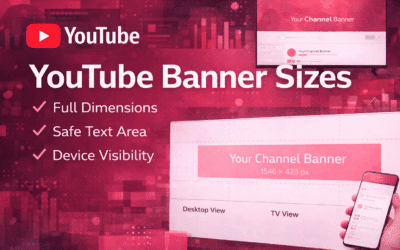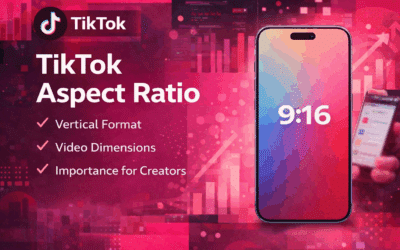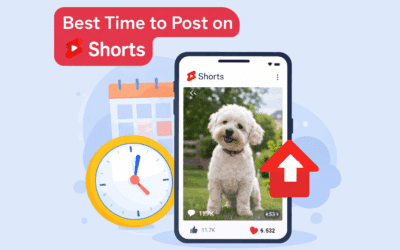Affiliate marketing vs influencer marketing: Which drives better ROI?
81% of brands use affiliate programs.
Influencer marketing?
It’s more than a $13.8 billion industry!
Welcome to the cut-throat arena of affiliate marketing vs influencer marketing.
Two digital marketing giants. They’re different yet powerful marketing strategies.
So, what’s the buzz about?
Let’s break it down.
👉 Affiliate marketing is all about earning commissions by promoting products. Performance is king here.
👉 Influencer marketing takes a different route. It’s about social clout. Influencers use their personal brand to connect and engage. This is the one for long-term value.
So, what’s better for your brand?
Which should you choose?
That’s the million-dollar question. 💸
At Click Analytic, we want you to succeed.
Ready to find out which strategy wins for you? Let’s start this battle.
What is affiliate marketing?

Affiliate marketing is a performance-based marketing strategy.
Businesses reward individuals or other companies (affiliates) for each visitor or customer brought by the affiliate’s marketing efforts.
Think of it as a digital salesperson earning a commission for promoting products or services.
So, how does affiliate marketing work?
🏆 Partnership establishment: Businesses partner with affiliates who agree to promote their products or services. These affiliates could be bloggers, social media influencers, or other digital entities.
🏆 Unique affiliate links: The business gives affiliates special tracking links. When someone clicks on these links and makes a purchase, the affiliate earns a commission.
🏆 Promotion: Affiliates use various channels like blogs, social media, or email newsletters to promote the products or services. Their goal is to drive traffic and conversions through their unique links.
🏆 Commission and reporting: The business tracks the traffic and sales generated from each affiliate’s link and pays commissions accordingly. This process is often managed through affiliate marketing platforms that provide detailed analytics.
What is influencer marketing?

Influencer marketing is when businesses collaborate with influential people, typically on social media or other digital platforms, to promote products, services, or brand messages.
These influencers, who have a sizable and engaged audience, leverage their credibility and reach to influence their followers’ purchasing decisions.
How does influencer marketing work?
🏆 Identifying suitable influencers: The first step is to find influencers whose image, audience, and content align with the brand’s values and target demographic.
These influencers can range from celebrities to micro-influencers with niche, dedicated followings.
🏆 Collaboration and agreement: Once suitable influencers are identified, businesses negotiate terms of partnership.
This might involve content creation, the campaign duration, compensation, and specific campaign goals.
Pro tip: Are you in this stage? Grab this free influencer marketing contract and ensure you don’t forget anything important.
🏆 Content creation and campaign launch: Influencers create and share content about the brand or product tailored to resonate with their audience.
This content could be in the form of social media posts, blogs, videos, or stories.
Pro tip: Use this free influencer marketing brief to bring your ideas to life.
🏆 Monitoring and engagement: The influencer and the business monitor engagement and interaction on the content throughout the campaign.
This includes tracking essential influencer marketing metrics, likes, shares, comments, and, most importantly, conversions and sales.
🏆 Evaluation and feedback: Post-campaign, the effectiveness is evaluated based on predetermined goals and metrics. Feedback is gathered, which can guide future campaigns.
Affiliate Marketing vs. Influencer Marketing – The Key Differences

Ready for a showdown?
Let’s put affiliate marketing and influencer marketing in the ring and see how they throw punches. 🥊💫
Approach – What’s the game plan?
Influencer and affiliate marketing have distinct approaches. It’s crucial to understand the best approach for your business.
👉 Affiliate marketing: Think of it as your trusty sales squad working on commission. Here, it’s all about driving sales and racking up those numbers.
Affiliates use their magic links to bring customers to the table, and ka-ching! They earn their share.
👉 Influencer marketing: Now, this one’s the cool kid on the block. It’s less about immediate sales and more about creating buzz and long-term success.
Influencers are like your brand’s BFFs, giving you a shoutout to their followers. While it can impact direct sales, it’s more about making your brand the talk of the town, one post at a time.
Target Audience – Who’s tuning in?
Affiliates and influencers have two different audiences. Your choice of the best marketing strategy depends on which audience you target.
👉 Affiliate marketing: This one’s for the deal hunters and savvy shoppers. The audience is already scrolling with their wallets out, looking for that killer recommendation.
👉 Influencer marketing: Here, you’re playing to a broader crowd. It’s not just about buying now; it’s about planting seeds of brand love. Influencer marketing whispers to an audience ready to listen and engage, not just purchase on the spot.
George El-Hage, CEO of Wave Connect, says, “In today’s competitive digital landscape, businesses often struggle to effectively engage their target audiences. At Wave Connect, we’ve seen how affiliate marketing taps into deal hunters—audiences already looking for trusted recommendations. This approach helped us achieve a 25% increase in conversions and a 20% reduction in customer acquisition costs. Affiliate marketing drives immediate sales and builds long-term relationships.” George’s experience shows that affiliate marketing is particularly effective for driving conversions in an audience that’s already primed for action.
ROI – Show me the money!

Return on investment (ROI) is a crucial metric for any marketing campaign. After all, we’re in it for the money.
However, measuring ROI in affiliate marketing isn’t the same as measuring influencer marketing.
👉 Affiliate marketing: ROI here is a numbers game, and the math is simple. You can track each click and sale, making ROI calculation a breeze.
👉 Influencer marketing: ROI here is a bit trickier. You’re looking at likes, shares, brand chatter, and that warm, fuzzy feeling of increased brand love.
The ROI might take its sweet time to show, but when it does, it’s like finding a pot of gold at the end of the rainbow. It’ll last a long, long time.
Real-life examples of affiliate and influencer marketing
Still confused about affiliate vs influencer marketing? Here are 2 real-world examples:

Team Affiliate Marketing: Picture Amazon’s affiliate program – a giant digital marketplace where every click can turn into cash.
Bloggers and site owners drop links like breadcrumbs, leading shoppers straight to Amazon’s door.

Team Influencer Marketing: Take Revolve, the fashion brand that’s practically the Oscars of influencer marketing.
They jet influencers to exotic places, deck them out in their threads, and let the Instagram posts roll in.
It’s less about “buy this dress now” and more about “don’t you wanna be as cool as me?”
Pros and cons

Strap in!
Let’s explore the ups and downs of affiliate and influencer marketing.
It’s like choosing between a superhero and a wizard – both are awesome, but their powers work best in different scenarios.
Affiliate marketing: The pros and cons
Let’s start with the good news.
📢 Performance-based pay: You only cough up cash when sales happen. It’s like only paying for home runs, not just swings or participation.
📢 Easy tracking: With unique links, tracking affiliate marketing sales is a piece of cake. You know exactly who’s bringing in the bucks.
📢 Broad reach: Affiliates can be anyone, anywhere – your brand gets to travel far and wide.
And now, it’s time for the bad news.
⛔ Less control: Your brand’s message is in the affiliates’ hands. Sometimes, they might play a bit fast and loose with it. Do you want to risk it?
⛔ Variable quality: Not all affiliates are created equal. Some might hit it out of the park, while others barely get on base. And remember, an audience associates your brand with what affiliates do with it.
⛔ Competition: Affiliates can play the field with multiple brands, so your product might only sometimes get the spotlight.
Influencer marketing: The highs and lows
Like affiliate marketing, here are the pros and cons of influencer marketing.
Here are the advantages:
📢 Brand buzz: Influencers can make your brand the talk of the town, boosting awareness and cool factor. It’s a quick and easy way to instant fame.
📢 Authentic connection: Their followers trust them. It’s like getting a thumbs-up from a friend, not just an ad. This trust converts into brand loyalty and big bucks.
📢 Creative content: Influencers add their own flair to your message, making it pop in a sea of sameness. There’s no worry about looking like every other brand out there.
Despite these epic benefits, influencer marketing has some disadvantages.
⛔ Trickier ROI: Measuring success isn’t as straightforward. It’s a long game, not a quick win.
⛔ Risk of mismatch: Partner with the wrong influencer, and it’s like wearing a tux to a beach party – awkward and ineffective.
⛔ Cost: Top-notch influencers can be pricey. You’re investing in their star power, after all.
Pro tip: Read our ultimate list of pros and cons of influencer marketing and learn how to balance the risks.
Choosing between affiliate and influencer marketing

So, back to our million-dollar question: Which should you choose, affiliate marketing or influencer marketing?
Guess what?
You don’t have to pick just one!
Affiliate and influencer marketing can tag-team to deliver a knockout punch. 🥊🤯
Let’s quickly explain how to combine affiliate and influencer marketing to win over your audience and close sales.
👉 Influencer converts, affiliate closes: Picture this: An influencer ignites interest with a killer post. Enter affiliate links – they make it easy for this new fan base to click and buy. It’s a one-two punch of persuasion and convenience.
👉 Data meets storytelling: Affiliates bring the data; influencers bring the story. Combine these, and you have a narrative driven by hard facts and human touch.
👉 Brand love and sales drive: Influencers can pump up your brand’s cool factor, creating a loyal following. Affiliates can then swoop in, converting this love into sales.

Conclusion
And there you have it – a deep dive into affiliate marketing vs influencer marketing. Whether it’s the direct-hit approach of affiliate marketing or the brand-building prowess of influencer marketing, both have unique advantages.
But remember, when these two join forces, the impact is exponentially greater.
And how do you do this?
You start by using an influencer marketing platform. It simplifies the process and supercharges your marketing strategy.
Influencer Marketing Articles
Actionable tips to get more success with influencer marketing campaigns
YouTube Video Size – Guide (2026)
The correct YouTube video size is 1920 × 1080 (16:9) for standard videos and 1080 × 1920 for Shorts. This guide includes exact thumbnail dimensions, banner safe area, resolution tables and export settings to avoid compression or cropping issues.
TikTok Aspect Ratio: Complete 2026 Guide
The ideal TikTok aspect ratio is 9:16 with a resolution of 1080 × 1920 pixels. This 2026 guide covers dimensions, safe zones, file size limits, compression tips, and benchmarks to help you optimize video quality and engagement on TikTok.
Best Time to Post on YouTube Shorts in 2026
There is no universal “best time” to post YouTube Shorts.
This guide compares top industry studies, real data numbers, and YouTube Studio insights to show when Shorts gain the most early velocity. You’ll learn how timing influences views and engagement, and how to test posting windows to find the peak hours for your own channel.






